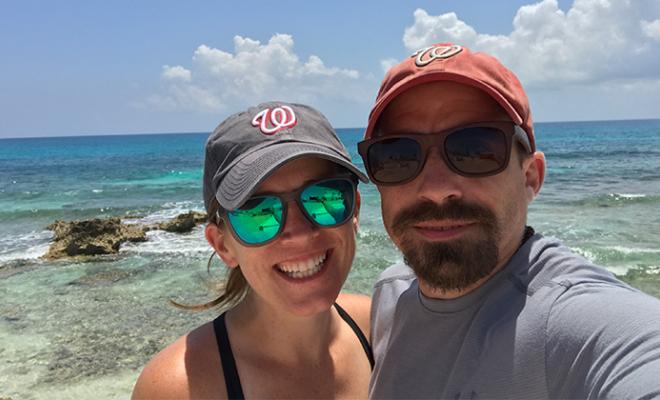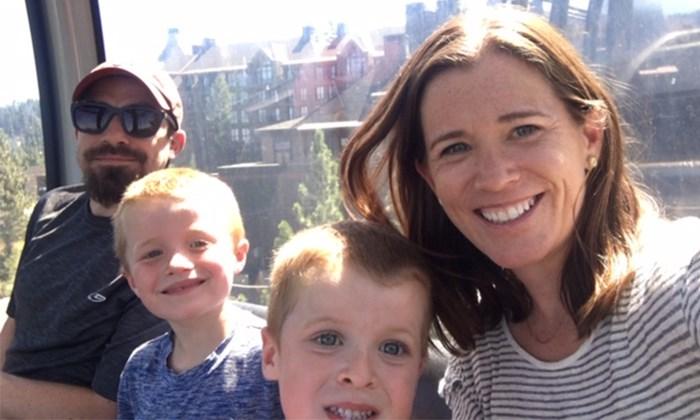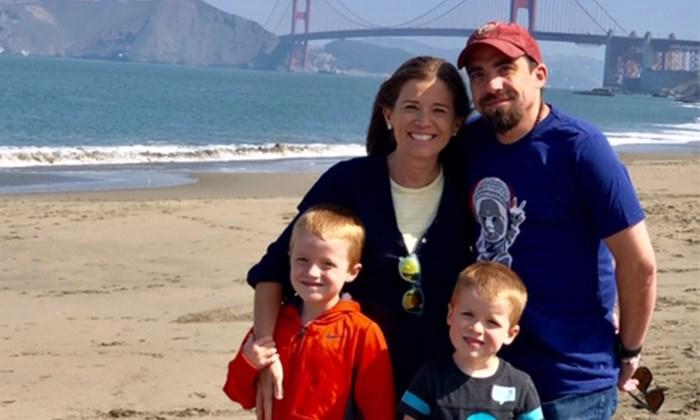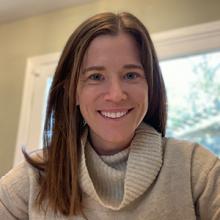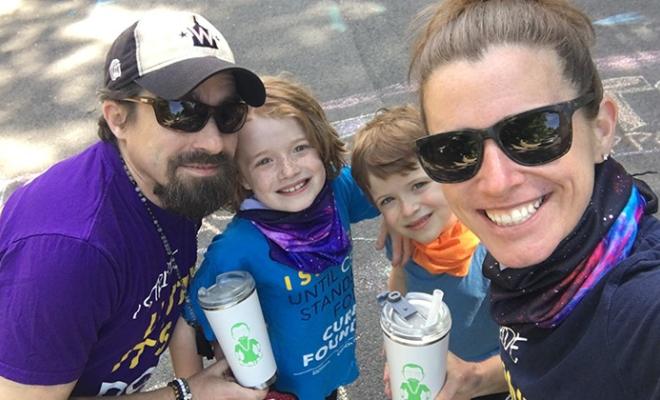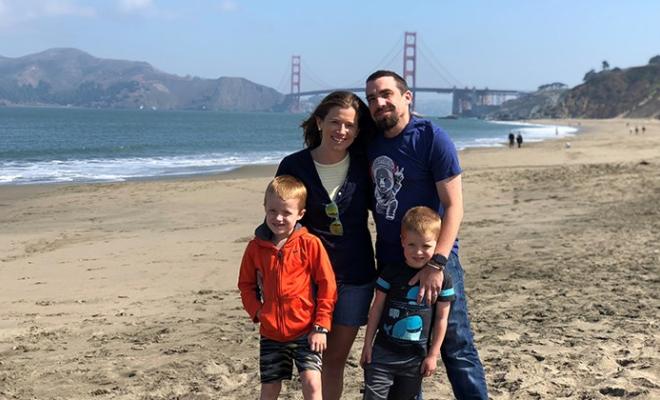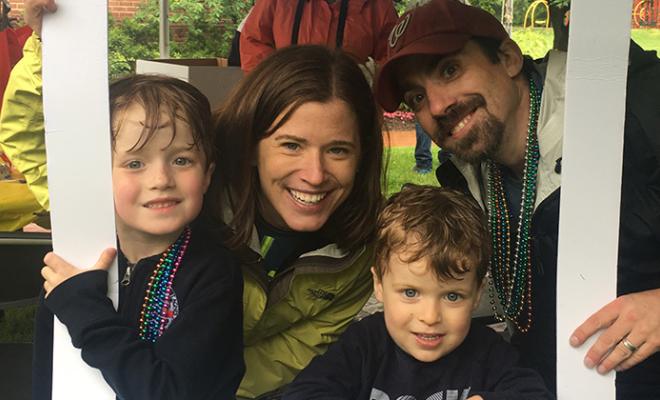I had a grand, carefree, conflict-free vision of what being a “grown-up” and a parent would be. That stemmed from the childhood view of the family I grew up in -- a very happy, loving place where my parents allowed my sister and me to grow up unaware of the challenges they faced to raise us. In my eyes, life was easy and nearly always positive and upbeat. But, now as a parent of 9-year-old Liam and 5-year-old Tate, a CF spouse, and a full-time teacher, I've learned a secret: there's no “normal” in life, and being a grown-up is certainly not carefree or easy.
I've learned that all families have their struggles, their ups and downs, and their successes -- and it's all these things melding together in a constantly evolving “normal” that sets the tone for each household. I'm pretty sure that the “normal” I thought of when picturing adulthood doesn't exist for any “real” grown-ups, CF household or not.
CF can make finding your family's “normal” harder. Treatment times, sickness, and depression all create extra hurdles to jump, hurdles that can make the day-to-day more challenging for all the members of your household -- the person with CF, their support people, and, in our case, kids.
This came to the surface a few Saturdays ago when our oldest son was supposed to be at the pool for a 7:30 a.m. swim meet warm-up. Thinking I was doing my husband, Chad, a favor by giving him extra time to sleep in before his treatments, I decided that I would take Liam early and Chad could join us closer to 9 a.m. when the meet actually started. The next morning, as we left Chad alone at home, it was clear he was feeling lonely and upset to not be with the family. I assumed I knew what Chad wanted, but I was clearly way off. We needed to do our normal duty of getting our swimmer to his meet early, but we also needed to do our family's “normal” of getting treatment time in before the day could truly begin. CF made getting out of the house early more complicated and, as a result, Chad was left feeling crummy, and I was too. Hopefully, emulating my parents' example, I was able to play it off enough, so Liam didn't realize we had a conflict because of his swimming.
Vacations are another time where CF impacts our family more than others. We often travel with other families. They do their best to understand CF and what treatments entail for Chad, but they don't live it regularly. Telling our friends that even though we're on a fun vacation Chad needs time to do treatments can be complicated. Recently, on a beach vacation, Chad woke up earlier than the rest of the group so he could join our family as we headed to the beach in the morning. On another trip, Chad missed out on morning donut trips and swimming to do his treatment so he could wake up with the rest of the family. Mind you, with our kids, he's not enjoying a luxurious sleep-in, by 7 a.m. we've risen and are already shining!
From my perspective, both approaches have their advantages -- I want Chad to be with our family, but I also want him to get the extra rest that vacation is supposed to bring. The part that's hard, though, is finding the best compromise for everyone, while also allowing Chad to make the choice he wants to make. The kids don't always want to wait on Dad to finish his treatments before heading to the beach, and Chad doesn't want to feel rushed doing the necessary steps for a healthy day. We've figured out some ways to make the planning more balanced for all, but it's a constant conversation to find a plan that works for everyone.
There are other times when CF gives me, as the non-treatment-needing adult, an unexpected break. Liam and Tate adore spending time with Chad while he does his breathing in the morning. They play games, watch television, build Minecraft worlds, and battle each other on the (virtual) FIFA turf. This leaves time for me to take care of housework, laundry, or, if I'm being more honest, have some “me time.” We've figured out that while the boys are all in the basement during treatment I can go for a run or catch up on phone calls. I'm sure that Chad would love to have time for himself, too, but his CF demands treatment, so he doesn't always get the extra time I have.
There's one more truth I've learned: CF can make your family stronger. Chad, Liam, Tate, and I are more connected than many families and we think CF is a big part of this. Together, we advocate, fundraise, and hope for a cure and for dad to be as healthy as he can. This means working together, with so many other impactful, impressive CF families for the common good. Being patient, helpful, and empathetic is something learned over time. Living in a CF house is teaching Liam and Tate (and Chad and me) to appreciate every day, every person, and to do our best to spread love to all we come across.
Here are some tips to find your “normal” (from someone whose “normal” is constantly changing):
- Don't assume you know what your partner wants. Even with 12 years of marriage I still get wrong what Chad wants to do from time to time. Taking the time to ask and talk over options is important. This is key for both members of the relationship.
- Kids are kids, and they need to be able to do kid stuff. All parents put aside their wants or desires for their kids. Because of treatment time or sickness, this can be harder for a CF house. But, working to limit CF's impact on kid activities not only helps normalize your family for your child(ren), but also gives a unified goal for you and your partner.
- Make sure you get to do what you want, too. Carve out time with your partner to run/paint/walk/read/whatever-makes-you-happy and not feel like you are being selfish. Self-care is not selfish -- you can't pour from an empty cup.
- Schedule downtime. This is key for all families, but especially for a family with a CF person who is also a parent: they need more time to rest. Give it to them and the rest of the time will be way more fun.
- Realize that a consistent “normal” does not exist for anyone. And it's ok if your normal is hard to find, comes and goes, and evolves all the time.
Join the conversation on Facebook.

